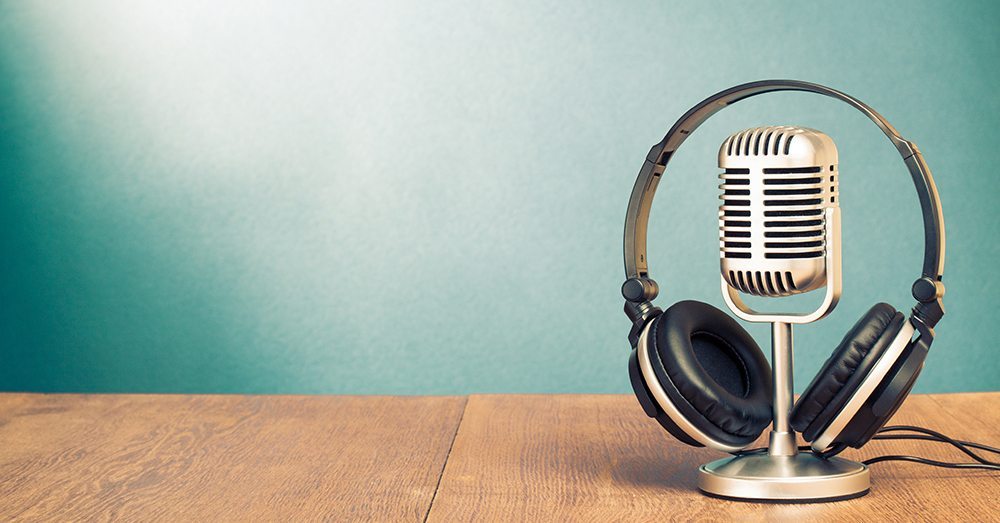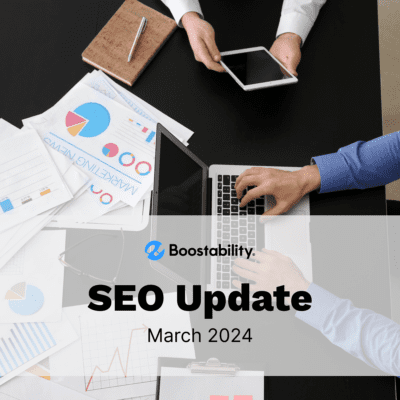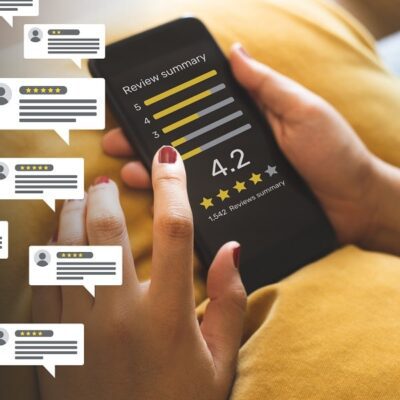When people find out I am a podcaster and podcast coach, I am amazed how many of them say to me, “You know I’ve thought about starting a podcast.” Recently a realtor friend of mine told me that her manager was encouraging the agents in the office to start a podcast to promote their real estate business. Clearly, more and more people are becoming familiar with podcasting and considering starting one. The question is – is it a good idea? The answer is: It depends – but if you do, now is certainly the right time.
Podcasting has been growing steadily over the last decade and has developed into a real industry. Blockbuster podcasts like NPR’s “Serial” with millions of listeners have brought a lot of attention to podcasting. Marc Maron’s “WTF” podcast made headlines when it managed to score President Obama as an in-studio guest. However, many niche podcasts are extremely successful. In fact, while the big podcasts get the attention, most successful podcasters are ones you’ve likely never heard of unless you are part of the niche they cater to.
Today, about 46 million people listen to at least one podcast a month. That is an all-time high and will continue to grow.
So, should the typical small business owner start a podcast? My advice is that if you have or are considering writing a blog, then a podcast might be perfect – in addition to or instead of a blog. In terms of a time commitment, a blog and a podcast take about the same amount of time once you get proficient. However, one big question before you go much further is – would you rather talk or write? If you are a person of few words who doesn’t really enjoy speaking then podcasting may not be a great choice. However, if you like speaking, have something to say and have an engaging personality then it is worth exploring podcasting.
One reason to consider it now is that many experts believe podcasting is about to explode over the next few years for a few significant reasons:
- Technology. It has become much easier to access podcasts. Not long ago, it took quite a bit of work to find and listen to a specific podcast. Now it is amazingly easy. You can get to almost any podcast on your smartphone in 4 clicks or fewer.
- Quality. The early years of podcasting were filled with mostly technical or amateurish sounding podcasts. In other words, even if you wanted to listen to a podcast, there wasn’t much in the way of quality programs to listen to. While there are still a lot of lousy podcasts, there are some really great ones. When the quality is there, people will find it.
- The Internet connected car. Many new cars have put the Internet at center stage of the dashboard. A friend of mine recently test-drove the new Tesla and discovered that the default radio setting was for Internet radio – and to get to traditional AM/FM radio required a bit of navigation. Drivers of new cars will be able to access, subscribe and listen to any podcast with relative ease. That opens up a huge audience and makes podcast listening even easier.
With a blog or newsletter, people must devote their full visual attention to it. With a podcast, people can consume it while doing other things (driving, walking, exercising, etc.). And we know people do. Statistically, most online audio consumption (radio, podcasts, streaming) occurs on mobile devices while people are doing something else. No doubt you see people all the time with their ear buds while they go about their day – that’s them. So while someone may not have the time to sit and read your blog or newsletter, they might be happy to listen to your podcast while doing other things.
No company is more into podcasting than Apple. Virtually every podcast is available on Apple iTunes and it is the portal where most podcast listening occurs. Google was in the podcast game with “Google Listen” but killed it back in 2012. However they just announced they are getting back into podcasting with its “Google Play Music Podcasts.” When both Google and Apple see promise in a budding industry, it is probably worth taking a look.
How do you make money from podcasting? In a few ways:
- Promoting your business. Similar to a blog, a podcast is a great way for people to discover you and your business. In this way, the podcast doesn’t provide direct income, it is simply a marketing tool for your business. I just finished coaching the CEO of an agency that now has a podcast targeted to families of disabled children. They felt podcasting could better tell their story and the stories of other families because listeners would hear the real people – emotions and all. In this way, they can more effectively make people aware of their agency and the services they provide.
- Selling your own products or services. If you can sell something directly to listeners, this is a perfect way to do it. You just have to be careful not to turn your podcast into a big long commercial. I interviewed a podcaster for my podcast who has a health podcast and he uses it to successfully promote his membership program that helps people lose weight.
- Advertising. If your podcast becomes popular enough, you can get advertisers. Many traditional radio and digital advertisers are finding great success with podcasters who are compatible with the content of the podcast. For example, food podcast might get Blue Apron to advertise. A legal podcast might get LegalZoom. By the way both of those companies spend a lot of money advertising in podcasts.
Estimates are that there are about 300,000 podcasts with new ones showing up all the time. So how can you start a podcast and get noticed? Strategically. Like a blog, there are best practices for podcasters to grow an audience. These include email marketing; having guests who promote their appearance on your podcast to their following; being a guest on other podcasts; advertising; press coverage and any other ways you can develop.
Podcasting typically requires a small capital investment in equipment. You can get enough equipment to start for a minimum of about $300. More reasonably, I think $500 is a good starting number. And if it doesn’t work out you can get most of your money back by selling it on eBay. Setting up the equipment is straightforward and there are many online videos that show you how. Better yet, I recommend to clients that they call their local radio station and ask one of the audio engineers to set up. You’ll have to pay for their time but it shouldn’t be much and you will know it set up correctly. There is also a company called Spreaker (www.spreaker.com) that has an app that is basically a recording studio for podcasters which theoretically could eliminate some of the equipment cost (you still need to buy a decent microphone).
One great reason to for a business owner or entrepreneur to start a podcast is visibility. We know people search iTunes in the same way people search Google or YouTube. iTunes is a search engine for podcasts. If you don’t have a podcast, people won’t find you there. In addition, having a podcast grants you authority and credibility. It is similar to being a published author. Being a podcaster gives you status in your field.
Like a blog, a podcast has to be produced regularly and predictably. You need to do it at least once a week in order to build up the momentum. That means you must have enough content to sustain a podcast week after week. Again, it is similar in many ways to committing to writing a blog.
The most important consideration is that your podcast has to be good. As a consumer of podcasts, I can tell you there are many horrible, unlistenable podcasts. People won’t tolerate it simply because they don’t have to. There are too many good alternatives. So you have to be sure you present yourself well and that you come off as professional and entertaining. Doing so is a skill. The basics are easily learned – and you only get better with experience.
Finally, the magic of podcasting is that it is an “intimate medium.” In other words, you are speaking in your own voice – and speaking straight into the ears of your listeners. People begin to feel as if they know you. You become somewhat of an authority. When it comes time to buy what you sell, people are going to want to buy from you. It is a powerful way to communicate.
If you would like more information, I invite you view the free video and written training on my website www.PerfectYourPodcast.com . And please feel free to email me with questions at [email protected]
About the author: Mike Carruthers is a career broadcaster, podcaster and podcast trainer. He is the host of the nationally syndicated radio show and podcast “Something You Should Know.” He has been an on-air talent at over a dozen radio stations and has produced and hosted national programs for all the major radio networks. He is the creator of PerfectYourPodcast.com which offers coaching services to new and existing podcasters.









